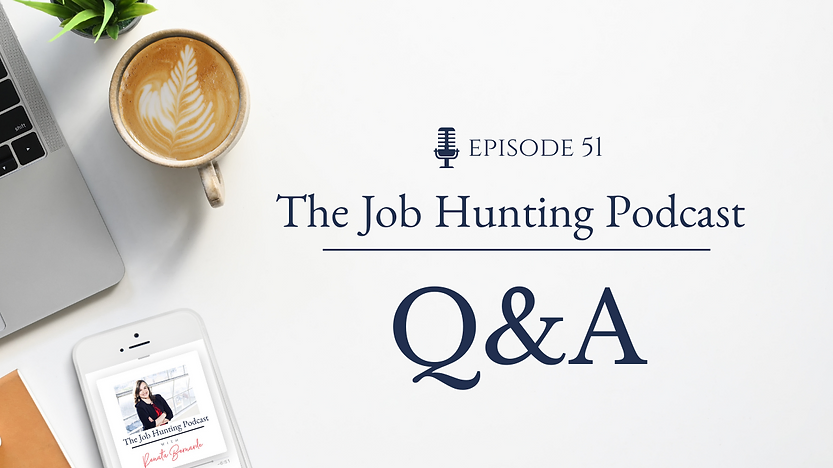Episode 51 - As a Career and Job Hunting Coach, I Get Asked Many Questions, and I Will Be Addressing Some of Them in This Episode of The Job Hunting Podcast

As a career, job hunting, and LinkedIn visibility coach, I get asked many questions, and I will be addressing some of them in this episode of The Job Hunting Podcast. This episode is suitable for professionals working in the corporate, public, or nonprofit sectors who are in-between jobs or looking to have better plans for their careers, adjusting to the new normal following the pandemic.
Reset Your Career: A Workshop and Action Plan to help professionals in transition
Lockdown, working from home, and a significant spike in unemployment have left many of us disconnected from what employers are now searching for in their new hires. This workshop and action plan were designed to help you regain focus and provide the tools and up-to-date information you need to reset your career. Learn more and register here.
Resources mentioned in this episode
Timestamps to guide your listening
Transcript of this episode
About the Host
Hello, I’m Renata Bernarde, the Host of The Job Hunting Podcast. I’m also an executive coach, job hunting expert, and career strategist. I teach professionals (corporate, non-profit, and public) the steps and frameworks to help them find great jobs, change, and advance their careers with confidence and less stress.
If you are an ambitious professional who is keen to develop a robust career plan, if you are looking to find your next job or promotion, or if you want to keep a finger on the pulse of the job market so that when you are ready, and an opportunity arises, you can hit the ground running, then this podcast is for you.
In addition to The Job Hunting Podcast, on my website, I have developed a range of courses and services for professionals in career or job transition. And, of course, I also coach private clients.
Contact Renata Bernarde
I’m determined to help you! I want you to feel empowered, nail your next job, and have the career you want.
My free resources for job hunters: The Optimized Job Search: Weekly Schedule & Masterclass.
Learn more about my services, courses, and group coaching: RenataBernarde.com
